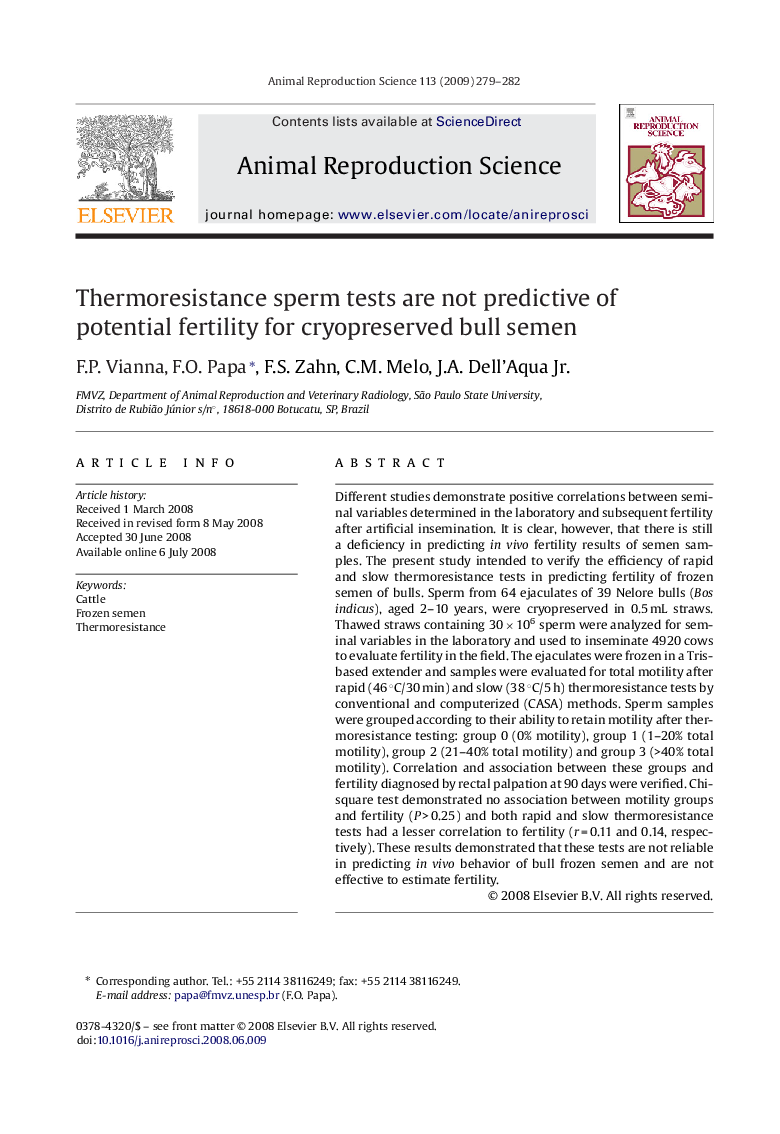| Article ID | Journal | Published Year | Pages | File Type |
|---|---|---|---|---|
| 2073809 | Animal Reproduction Science | 2009 | 4 Pages |
Different studies demonstrate positive correlations between seminal variables determined in the laboratory and subsequent fertility after artificial insemination. It is clear, however, that there is still a deficiency in predicting in vivo fertility results of semen samples. The present study intended to verify the efficiency of rapid and slow thermoresistance tests in predicting fertility of frozen semen of bulls. Sperm from 64 ejaculates of 39 Nelore bulls (Bos indicus), aged 2–10 years, were cryopreserved in 0.5 mL straws. Thawed straws containing 30 × 106 sperm were analyzed for seminal variables in the laboratory and used to inseminate 4920 cows to evaluate fertility in the field. The ejaculates were frozen in a Tris-based extender and samples were evaluated for total motility after rapid (46 °C/30 min) and slow (38 °C/5 h) thermoresistance tests by conventional and computerized (CASA) methods. Sperm samples were grouped according to their ability to retain motility after thermoresistance testing: group 0 (0% motility), group 1 (1–20% total motility), group 2 (21–40% total motility) and group 3 (>40% total motility). Correlation and association between these groups and fertility diagnosed by rectal palpation at 90 days were verified. Chi-square test demonstrated no association between motility groups and fertility (P > 0.25) and both rapid and slow thermoresistance tests had a lesser correlation to fertility (r = 0.11 and 0.14, respectively). These results demonstrated that these tests are not reliable in predicting in vivo behavior of bull frozen semen and are not effective to estimate fertility.
